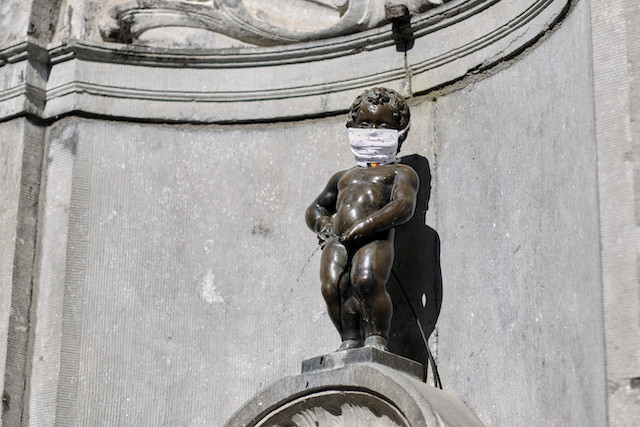The measures, announced on Wednesday and decided by the consultation committee, will apply for the next four weeks (until 25 April).
It means that primary and secondary schools will be closed for three weeks, until 19 April, the date of the end of the Easter vacation. The same situation applies to higher education.
Between 29 March and 2 April, courses will be given via distance learning. Childcare facilities will be organised for parents with jobs that do not allow for telecommuting, or for those who cannot take care of their children. Kindergartens will remain open.
Non-essential businesses will be able to continue, but they will only be accessible by appointment. Moreover, the number of people visiting these shops will be limited to a maximum of 50 and their activity will be regulated by strict time slots. Contact businesses, such as hairdressers, beauty salons and tattoo parlours, will have to close their doors.
Logically enough, the essential stores will remain open. This list includes, among others, food stores, pharmacies, bookstores, DIY stores, garden centers, stationery stores and night stores.
As far as social life is concerned, the outdoor bubble is reduced from ten to four people. Children are not included in these “outdoor bubbles”. Inside, the bubble remains unchanged, which means households can only welcome one person, child or adult from outside the home. Youth camps and other extracurricular activities are allowed, but only during the Easter vacations, in groups of no more than ten people and without overnight stays.
In terms of freedom of movement, non-essential travel abroad remains prohibited, and border controls will be tightened. The curfew remains the same as the current situation, i.e., midnight in Wallonia and Flanders, and 10pm in Brussels.
In companies, teleworking is still compulsory, and prime minister Alexander De Croo announced that controls will also be increased, with stricter penalties for non-compliance.
The premier also stressed the importance of complying with these measures, coupling this with the ongoing vaccination campaign, setting it all up as the main keys to a return to normality. “The objective is the same: to have a calm summer. In the coming weeks, everything will depend on our behaviour and vaccination,” concluded De Croo.
From the start of the pandemic up to 23 March, Belgium has recorded 843,000 positive Sars-CoV-2 infections and 22,763 related deaths. On 22 March, just under 4% of the population had been fully vaccinated and 8.8% had received a single vaccine dose.
This article was originally published in French on Paperjam.lu. It has been translated and edited for Delano.
